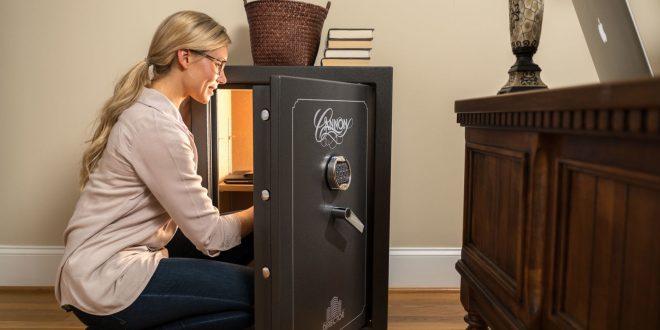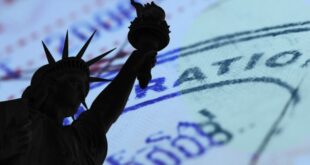Are you confused about which items to store in a home safe or in a safety deposit box at the bank? This predicament often arises for most people since choosing between the two can be tricky.
Did you know that safety deposit boxes aren’t FDIC insured? That may come as a surprise, but it shouldn’t deter you from opening a safety deposit box since it’s highly unlikely for anyone to break into one at a trustworthy bank.
However, there are certain advantages to storing your valuables in a home safe. For instance, you have 24/7 access to a home safe as long as your home. As a result, you always have access to important possessions no matter the day of the week, and since banks have business hours and are closed on weekends & holidays, this is the main reason to choose a home safe over a safety deposit box.
Not to mention, accessing a safe in the comfort of your own home is much better than having to drive to the bank and jump through some hurdles just to access your box. Now that you’ve pondered those thoughts, here are the items that are best kept in a home safe.
1. Jewelry & Coins
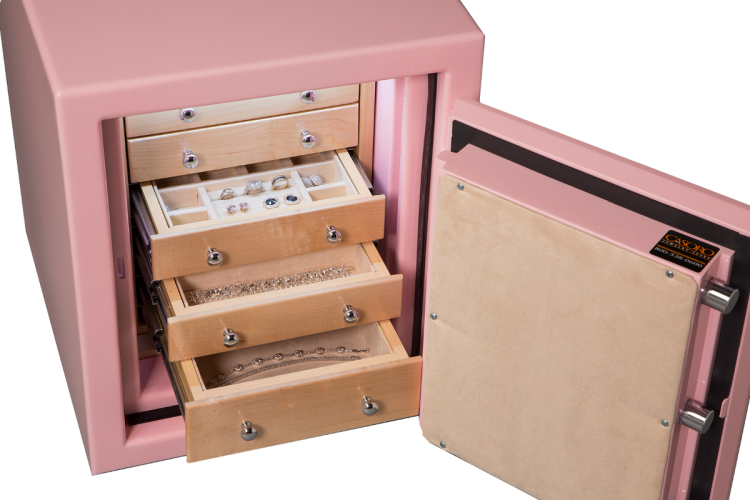
Your most valuable jewelry is best kept in a home safe to give you around-the-clock access to it because you never know when a special occasion might arise. Just imagine how depressing it’d be if you couldn’t access your favorite piece of jewelry for an impromptu romantic night out with your significant other.
Plus, since safety deposit boxes aren’t FDIC insured, the bank won’t cover the cost of your jewelry. In addition to your jewelry, valuable coins are best kept in a home safe, especially if you’re a collector who prefers to keep your collection at home or mix up which coins you display.
2. Passports
Another item to store in a home safe to always have it on hand is your family’s passports. Passports aren’t only needed for travel. For instance, you might need your passport at any time as a second form of identification.
Additionally, if you ever decide to take an international trip, it’s always best to have your passport on hand. According to Chuck, the owner of Anti-Theft Boss, passports are best kept in a floor safe embedded in concrete for maximum security and protection against fire damage.
3. Hardware Bitcoin Wallet
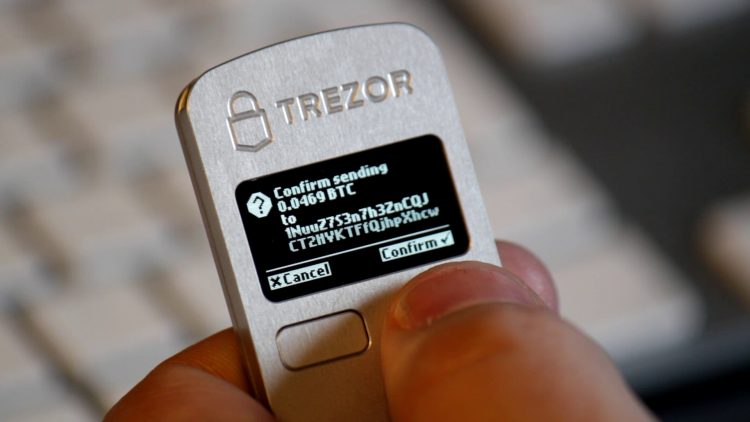
With the meteoric rise in cryptocurrency enveloping the world, crypto hardware wallets are becoming increasingly more popular and common. This is one of the items in this article you might not have thought of before that should always be kept in a home safe.
After all, the whole point of cryptocurrency is to give you complete control over your money, and a hardware wallet is the most secure way to store your Bitcoin. A good floor safe is a great place to store a bitcoin wallet since it’s both hidden and fireproof.
4. A Full Set of Spare Keys
It’s always a good idea to a have a full backup set of all of your keys. This includes your car, house, safety deposit box, storage locker, etc. By taking this step, you guarantee that you’re never locked out of places you need to access at any given moment. That is as long as you don’t lose your house keys.
Also, when making your spare keys, don’t shy away from thinking outside of the box. If you use padlocks around your home for sheds, toolboxes, or for any other reasons, check to make sure you can have duplicates made or that the lock comes with multiple keys.
5. A Full Physical Backup of Your Most Valuable Digital Files
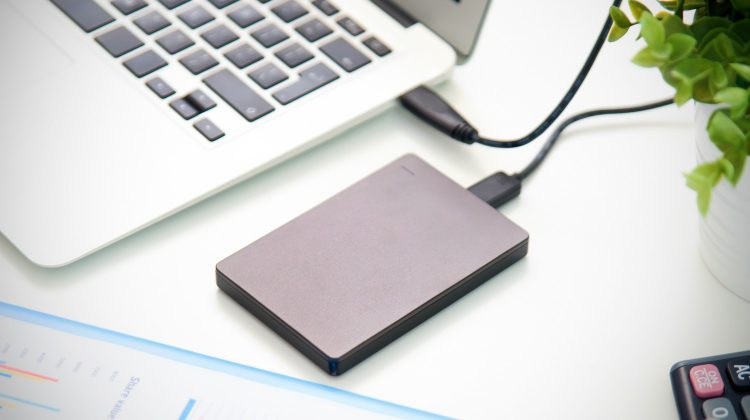
Yes, most people who want to back up their files keep them in cloud storage, but it’s wise to also make a physical backup on an external hard drive. These days, external hard drives with tons of storage space are available for affordable prices.
When choosing an external hard drive, it’s important to stick with the most trustworthy brands to ensure you don’t lose your backup. Plus, with how much storage SD cards offer nowadays, it’s also wise to make multiple backups of your most important files, especially your photos.
Altogether, an external hard drive and SD card(s) take up little space inside your safe and will always be there when you need them.
Final Tips
These are just a few of the most important documents and possessions to keep inside a home safe rather than in a safety deposit box at the bank. For example, passports aren’t the only documents you should keep in a home safe, but they do help you get into the right mindset of how identification documents should be kept at home.
Additional paper documents you should keep in a home safe include your Social Security cards, birth certificates, car titles, emergency cash, and any important legal documents that are best to have on hand. All in all, it goes without saying that these items should be stored in a home safe.
When choosing a safe for your home, be sure to consider the types of safes and whether you prefer to have protection against fire damage. One of the reasons that floor safes are mentioned in this guide is their ability to protect against fire damage when installed in concrete.
Also, floor safes are a good choice for your most valued possessions since they are hidden well and don’t need to be accessed often. Compared to a freestanding safe, it’s possible to hide a floor safe in such a way that it’s virtually impossible for a burglar or visitor to find it. Plus, floor safes are inherently harder to break into since they have smaller access doors and less exposed parts.
Lastly, brainstorm all of the items you plan to keep in your safe to make sure you choose a safe with enough room. Once you know exactly what you plan to put in it, add some free space in case you need to add more items later.
 Hi Boox Popular Magazine 2024
Hi Boox Popular Magazine 2024
